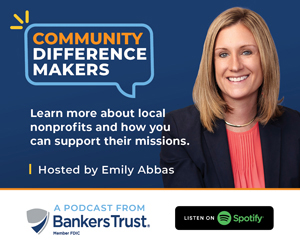GUEST OPINION: Nonprofits should strive for financial literacy

Financial literacy – or, more accurately, illiteracy – has been much in the news lately, as studies find that more and more Americans lack the knowledge and understanding to manage their own finances effectively.
But financial literacy is also a significant consideration for nonprofit organizations. A recent Indiana University study, “Financial Literacy and Knowledge in the Nonprofit Sector,” used three questions about bonds, investments and stock diversification to check the financial competency of managers at various nonprofit organizations in the United States. The study discovered that only 36 percent could answer all three questions correctly.
Nonprofits may wonder why they should focus on improving the financial literacy and competency of their financial managers. Simply put, in the current economy, the ability to efficiently and properly manage funds may directly influence a nonprofit’s ability to provide vital services to its community, and possibly even its ability to survive. Improving a manager’s financial literacy will likely come at a cost, but the expense of additional money management courses is probably outweighed by the benefit of avoiding fiscal troubles later on.
Fortunately, nonprofit financial managers have many options to improve their financial literacy. According to the Indiana study, taking additional courses in economic or financial education leads to a marked improvement; the study participants who had taken five or more economics and finance courses had the best performances on the three study questions. These courses could be taken as part of an M.B.A. program or as stand-alone continuing education courses. Presumably that success would correspond with the best understanding of nonprofits’ money-management concerns.
Other steps may also help nonprofits improve their fiscal stability during a difficult economy. First, nonprofits should find ways to minimize the effect of unforeseen variations in income or expenses. As the economic downturn of 2008 and the slow recovery since then have shown, the sustainability of nonprofits depends on the ability to adjust to changes in the market. One way to avoid falling prey to market trends is to maintain a cash reserve equivalent to three months of operating expenses, according to a 2011 article in Philanthropy Matters.
Second, financial managers of nonprofits should become comfortable with strategic planning, develop an awareness of market trends and make employees aware of the nonprofit’s money-management policies.
Developing a nonprofit’s financial literacy and competency could benefit the nonprofit not only by helping the organization avoid the more serious consequences of future economic downturns, but also demonstrate long-term stability that may attract new donors who see that stability as worthy of their charitable investment.
This article was co-written by Richard Koontz, director of the Larned A. Waterman Iowa Nonprofit Resource Center at the University of Iowa, and George Kennedy, research assistant and University of Iowa law student.







